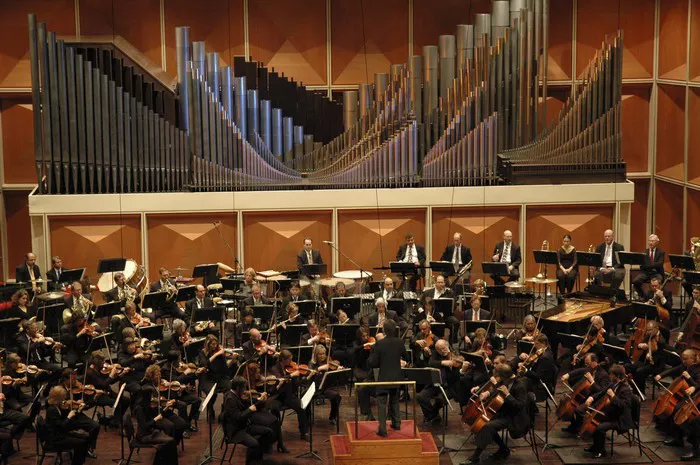Classical music is a genre that has captured the hearts and minds of music enthusiasts for centuries. Its timeless compositions and rich history make it a fascinating subject for exploration. In today’s digital age, where music is readily accessible and shareable, many individuals and businesses find themselves wondering about the copyright and royalty implications of using classical music in various contexts. This article aims to shed light on the intriguing question: Is all classical music royalty-free?
Understanding Classical Music: A Brief Overview
Before delving into the intricacies of classical music copyright, it’s essential to understand what classical music encompasses. Classical music is a genre that spans several centuries, characterized by its intricate compositions, formal structures, and orchestral arrangements. It includes the works of legendary composers such as Ludwig van Beethoven, Wolfgang Amadeus Mozart, and Johann Sebastian Bach, among others.
Classical Music and Copyright: The Basics
Classical music, like any other genre, is subject to copyright protection. Copyright law grants creators exclusive rights to their works, including the right to reproduce, distribute, and perform their compositions. These rights typically extend for the life of the composer plus an additional 70 years in most countries. However, classical music presents some unique challenges when it comes to copyright due to its historical and often complex authorship.
Public Domain Classical Music
One of the most significant factors that determine whether classical music is royalty-free is its copyright status. Classical compositions that have entered the public domain are not subject to copyright restrictions and are, therefore, considered royalty-free. Music enters the public domain when copyright protection expires, which occurs after a certain number of years following the composer’s death. For instance, Beethoven’s symphonies, which were composed in the 18th and 19th centuries, are now in the public domain, making them freely accessible for various uses.
Orchestrated Complexity: Multiple Layers of Copyright
While the works of classical composers themselves may be in the public domain, performances and recordings of these compositions can be subject to copyright protection. This layered approach to copyright complicates the question of whether all classical music is royalty-free. When a modern orchestra records a performance of a Beethoven symphony, for example, the recording itself is protected by copyright, even though the underlying composition is in the public domain.
Contemporary Interpretations: Licensing and Royalties
In addition to traditional classical music performances, contemporary artists and composers continue to create new interpretations and arrangements of classical pieces. These modern renditions may incorporate electronic elements, fusion with other genres, or innovative instrumentations. When these contemporary interpretations are made, they often involve licensing agreements and royalties to be paid to the copyright holders, if applicable.
Classical Music in Film and Media
Classical music has a long history of being used in film and other media. From epic soundtracks to dramatic moments in cinema, classical compositions have added depth and emotion to countless scenes. However, the use of classical music in these contexts typically involves licensing agreements and payment of royalties to the copyright holders or their estates.
Live Performances and Royalties
Classical music continues to thrive through live performances by orchestras, chamber ensembles, and solo musicians. These live events are subject to performance royalties, which are typically collected and distributed by performance rights organizations (PROs) such as ASCAP, BMI, and SOCAN. PROs ensure that composers and rights holders receive fair compensation when their works are performed in public.
Digital Streaming and Royalty Payments
The digital age has brought classical music to online streaming platforms, making it more accessible than ever before. However, even in the digital realm, copyright considerations persist. Streaming services like Spotify and Apple Music must obtain licenses from rights holders to include classical music in their libraries. Royalties are then paid out to the appropriate parties based on the number of streams and plays.
Educational and Nonprofit Use
It’s important to note that some exceptions and exemptions exist in copyright law for educational and nonprofit use of classical music. Educational institutions and nonprofit organizations may be able to use classical music in certain contexts without obtaining licenses or paying royalties. However, these exemptions are subject to specific conditions and limitations, and it’s crucial to consult legal counsel to ensure compliance.
Classical Music and Creative Commons Licenses
In recent years, some composers and performers of classical music have chosen to release their work under Creative Commons licenses. These licenses allow creators to specify how their music can be used, whether for commercial purposes or derivative works, without the need for traditional copyright enforcement. This approach has made some classical music freely available for creative and commercial use, while still allowing composers to maintain control over their creations.
Navigating the Complex Landscape of Classical Music Copyright
In summary, the question of whether all classical music is royalty-free does not have a straightforward answer. The copyright status of classical compositions varies depending on factors such as the composer’s date of death and the jurisdiction in which the work was created. Additionally, the use of classical music in different contexts, from live performances to digital streaming, may involve licensing agreements and royalty payments.
For those seeking to use classical music in their projects or performances, it’s essential to conduct thorough research on the specific compositions and recordings in question. Rights holders, such as music publishers or estates, should be contacted to obtain the necessary permissions and licenses. Furthermore, working with legal professionals experienced in copyright and intellectual property law can help navigate the complex landscape of classical music copyright.
In conclusion, while classical music offers a treasure trove of timeless compositions and inspiring performances, its use in various settings requires careful consideration of copyright and royalty implications. By understanding the nuances of classical music copyright and seeking appropriate permissions when needed, individuals and organizations can continue to share the beauty and richness of classical music with the world while respecting the rights of its creators.

